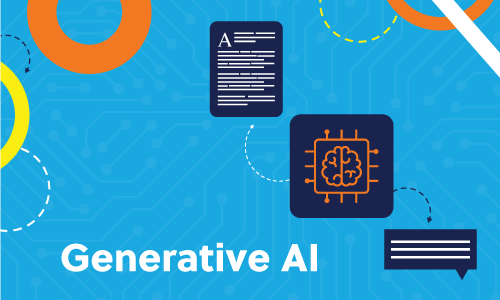AI has the potential to transform industries and workplaces. As important, it has the potential to help advance science and address many societal challenges.
But universities, research organizations, non-profits, and small businesses could face technological and economic barriers when it comes to leveraging AI. The most robust uses of AI require access to tremendous computational power and data resources, which may be unavailable due to budgetary and technological constraints.
A Program to Democratize Research with AI
The inability of researchers to use AI to its full potential could have significant consequences. Scientific investigation in critical areas such as renewable energy and medicine could be slowed. One solution to this problem has been proposed and is now being tested: the creation of a National Artificial Intelligence Research Resource (NAIRR). The federal NAIRR would provide AI computing power and data access to qualifying organizations that would otherwise be unable to fully benefit from AI.
In January 2023, the federal NAIRR Task Force—a federal advisory committee created by the National AI Initiative Act of 2020—issued a detailed report laying out a plan for implementing the NAIRR and calling on Congress to authorize and appropriate funds for this purpose. In a subsequent public letter, a coalition of leading American universities and AI companies endorsed the Task Force’s report—and called on Congress to pass legislation to support the NAIRR.
NAIRR Pilot Program Launches
Congress did not pass NAIRR legislation in 2023, but President Biden provided executive branch support for the program with his October 2023 AI Executive Order. The EO directed the National Science Foundation (NSF) to launch an interagency NAIRR pilot program.
In November 2023, the NSF began the process of designing the pilot program, convening the first in a series of meetings with stakeholders from academia, industry, the non-profit community, and government. Potential areas of research for the pilot include:
- AI safety, reliability, security, and privacy.
- Advancing cancer treatment and individual health outcomes.
- Supporting resilience and optimization of agricultural, water and grid infrastructure.
- Improving design, control, and quality of advanced manufacturing systems.
- Addressing Earth and environmental challenges via the integration of diverse data and models.
The pilot launched on January 24. 2024, with the participation of 11 federal agencies and 25 private-sector partners, including Microsoft, OpenAI, NVIDIA, AWS, and many others. According to the NSF, the pilot represents “a first step towards realizing the vision for a shared research infrastructure that will strengthen and democratize access to critical resources necessary to power responsible AI discovery and innovation.”

Coverage of this development includes articles on FedScoop, Vox, and Yahoo! Finance. Microsoft CSO Eric Horvitz discusses Microsoft’s participation in the NAIRR in a Microsoft on the Issues blog.
Voices for Innovation will continue to track the progress of the NAIRR pilot program and steps Congress takes to fully establish the NAIRR.

